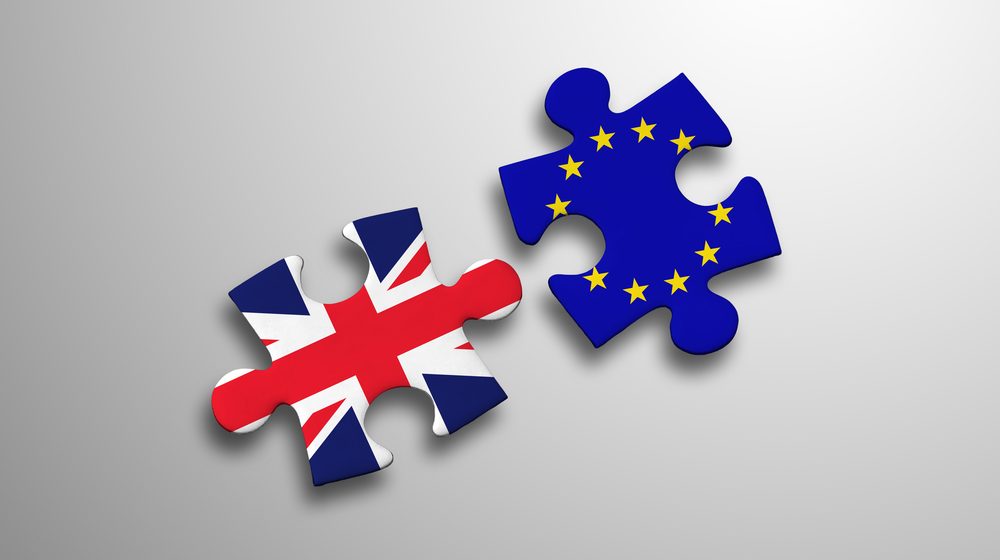“National Interest” has entered the lexicon as a phrase that implies a realist approach to International Relations. It carries an assumption that is it possible to define the national as a melding and cohering of all interests, including business, sectoral, regional, and religious, within a country.
When politicians use the phrase National Interest they seek to convey a message about the importance of what they are saying. It is a term deployed to allude to grand ideas and strategies and to conjure up an image of national power, rather than to illuminate what is actually going on in the foreign policy process, or routine political activity. The phrase can and has been applied to the military, political and economic spheres—the latter especially in the context of economic autarky. Invoking the National Interest is more commonly associated with times of war or major crisis, and the consequent need for the government to rally all the forces and interests within a country behind it: UK Prime Minister Theresa May used it at least twice in her Lancaster House speech of 17 January. National Interest implies the expectation of national agreement and consensus for the state when it seeks to promote its role, or hold its own in an anarchical international system.
In IR, National Interest is traditionally linked with what has been labeled by scholars as a billiard ball approach to foreign policy, in which the nation-state is defined and treated as a unitary actor, more important than the “cobweb” of national and transnational connections that others see to be important to an understanding of foreign policy.[1] So the phrase sets the national apart from the routine, or the sub-national and sectoral, and is also in contra-distinction to the international and the supra-national.
Function over time
War and crisis form the backcloth to the deployment of the term National Interest in foreign policy. The term has had its most useful role in time of war. It is the bottom line of the government of every nation-state to protect the geographical, political and cultural integrity of a country, and the idea of defending the national interest against external attack is perhaps one of the simplest of political ideas. In practice, it is associated with secrecy in policy making. In war and peacetime, it has generally been accepted that major foreign policy issues were taken secretly and that foreign policy was not open to much party-political conflict, but was national, and therefore above party-political debate (“securitised”). Private briefings were given to the opposition leaders, but bipartisanship was a classic feature of British foreign policy making after 1945.
Britain and the EC/EU
Britain was always reluctant to embrace supranational principles for the management of international cooperative institutions. From 1948, it preferred intergovernmental institutions – and was responsible for the insertion of the state-based Council of Ministers into the Council of Europe (1949) structure. It refused to participate in the early planning for the European Community (EC) from 1950 (Schuman Plan) onwards. It, and the subsequent European Economic Community (EEC) institutions would, the British argued, undermine British sovereignty and thus its National Interest.
It was considered to be in the UK’s National Interest to support continental supranational integration, but not to participate. This ambivalence about integration as a phenomenon, and the UK’s role inside supranational institutions like the EC/EU lasted until 1961, when the Conservatives applied for membership, only to find themselves excluded until the retirement of France’s General de Gaulle in 1968. Then, after 1970, Conservative Prime Minister Edward Heath recast the issue, as one relating to the practical deployment of sovereignty in the National Interest.
National Interest now required the redefinition of sovereignty, but he was reluctant to tell the voters this. He promised that ‘there is no question of Britain losing essential sovereignty…[but] we have all come to recognize our common European heritage, our mutual interests and our European destiny.’[2] That is, it was in the UK’s National Interest, mutualized, to be a member of the EC.
The 1975 referendum, only three years after the UK finally joined, did give a mandate for continued membership of the EC, but the organisation of that referendum had a built-in bias towards this outcome. It nevertheless contributed to a major split in the Labour Party in the following decade. Leading Labour MPs’ hostility was in part because of the “capitalist” character of the Community, but was also for core reasons of national preference. The boundaries between national interest and nationalism have, in the context of the European issue, always been very thin.
PM Margaret Thatcher distinguished between a free market, and the protection of borders (against terrorism), and commercial interests by invoking the European community as a family of parliamentary nations that should not undermine the national sovereignty issue.[3]
By the time of the Maastricht Treaty, this dilemma could no longer be ignored, and opt-outs, and special treatment in the UK’s National Interest became woven into the fabric of Community negotiations and decisions. While the political and cultural landscape of European integration has changed and developed over the following 60 years, the mind-set in the UK has only shifted very slowly. Both major political parties remain divided on the issue of the EU.
This is at the root of our current problems, although the distinctions between National Interest and Nationalism are again becoming dangerously blurred. Benign scepticism about supranational integration has been counter-balanced in an aggressive fashion.
23 June 2016
23 June 2016 was the culminating moment in a debate that has dominated Britain’s West European politics since the end of World War Two. The referendum has produced the greatest political storm in British politics for many decades, and the notion of the National Interest lies at the heart of the debate. The British voters voted by roughly 52-48 per cent to leave the EU in the referendum called by Conservative Prime Minister David Cameron. The “Brexiteers” (those for British-Exit), as they cleverly became known, totally out-manoeuvred the “Remainers”, for they tapped into a deep stream of general discontent with elites and a populist fear of “the other”. (The 52 per cent were often called the ‘left-behinds’) This vote was on a high turn out of 72 per cent.
Although technically advisory, Cameron had said he would respect the result of the referendum, and resigned after the results were announced. The new Conservative Prime Minister, Theresa May had the referendum vote as her sole mandate. Hence the much-repeated mantra, ‘Brexit means Brexit’, which prioritises the referendum vote.
So why is this drama at the centre of the National Interest question? First, because the totality of UK interests may be drastically re-arranged as a result of this referendum. This may not be war, but the strategic U-turn for the country is more significant than even that of the joining of the EC in 1973, when the size, the reach and the significance of the Community was far smaller. This is genuinely an issue that affects every Briton, every region, every sectoral and business interest, and one that affects the National Interest in the broadest conception of the term.
The political debate has revealed another crucial issue. That question is how do we measure National Interest? Should a referendum vote trump a parliamentary election? Was the majority too small to be acceptable (UKIP said if the vote had gone 52-48 per cent the other way they could not have accepted the result!). Should a referendum vote then give a government the right to act upon royal prerogative, rather than through parliamentary collective decision-making? Should a referendum vote be susceptible to a “second try”—reconsideration when the terms of leaving the EU are known? How should Members of Parliament (MPs) react to a referendum vote when their own views do not tally with those of the voters in their constituency? Prime Minister May has said that, for herself, while leading Britain out of the EU, but from a constituency which voted to remain, is she is a representative, not a delegate, a view with which many of her colleagues are not able to agree.
Those for, and those against the UK leaving the EU both claim that they represent the National Interest. Those who wish to leave claim that the National Interest is reflected in the majority referendum vote to leave. Remainers claim that the outcome of leaving the EU will be fundamentally destructive to all sectors of society and thus destructive of the National Interest at its most profound, embracing both subsequent foreign policy, but also economic and cultural interests. It may also lead to the break-up of the United Kingdom itself, as the voters in Northern Ireland and Scotland voted to stay in the EU. They argue that voters were ill-informed about the EU and the implications of leaving, and were lied to by both sides in the campaign with exaggerated claims. The referendum vote was essentially simply against the status quo generally. Thus, they question the validity of the vote itself despite the numerical majority that voted to leave.
At the time of writing, the future direction of this policy is still very unclear. Should there be another referendum? I think that there should be this option for a mature democracy on a crucial issue of National Interest. Or should Parliament have the final word on what is negotiated, thus placing itself as the final arbitrator of the National Interest, which is “sort-of” what May appears to concede? Interpretations of the National Interest have been at the forefront of the debate in an entirely new way for the British, pitching referendum against parliamentary voting, domestic and against foreign policy issues, numerical majorities against political and economic arguments, elites against elites.
It is reflective of a new kind of politics, first in the sense that “inter-mestic” politics—the blend of foreign/international and domestic politics has changed everything. Membership of the EU is not about our national foreign policy alone. Second, the “flattening down” of society by social media, tweets, and the overwhelming impact of the internet, and especially its capacity to influence by “post-truth” assertions and statements, can, when combined with a populist, single issue vote, give rise to an entirely new form and interpretation of what the National Interest—still poorly defined—should now mean.[4]
This article is a shortened version of a piece that will appear in French in La revue internationale et strategique, published by IRIS, Paris.
References
[1] ‘National Interest’ is also used to distinguish national from the sub-national, when looking at the domestic and sub-unit dimensions of a country’s organisation. This includes both regional, but also business and other interests, but this is not the focus of this piece.
[2] Edward Heath, House of Commons, 1972, Brussels 22 January 1972.
[3] Thatcher Bruges speech, 1988, http://www.margaretthatcher.org/document/107332
[4] For commentary at the time on the referendum campaign and its aftermath, see inter alia, The New European, a “pop-up newspaper for the 48%”, which has had remarkable success and readership since June 2016.







